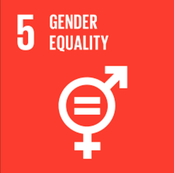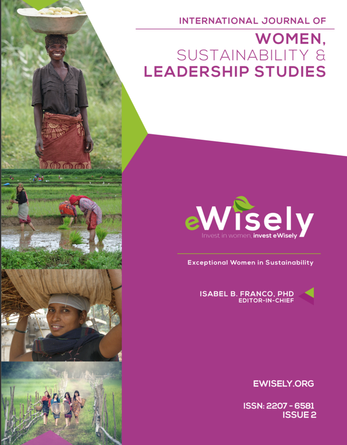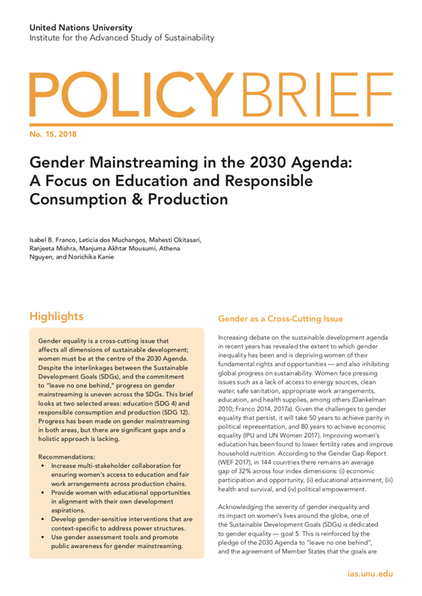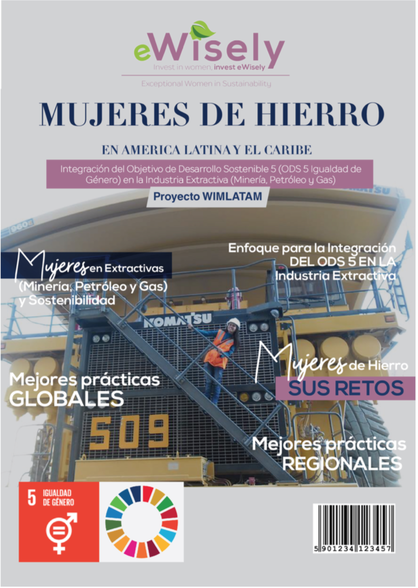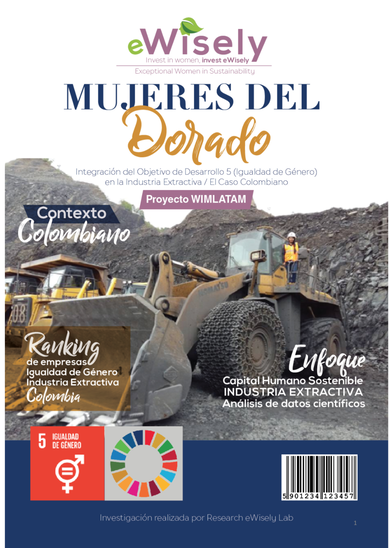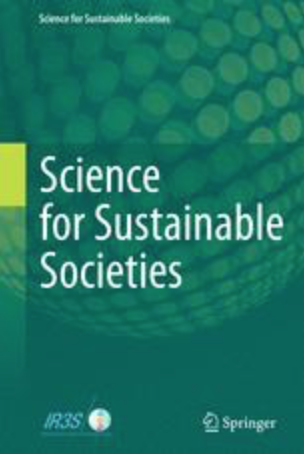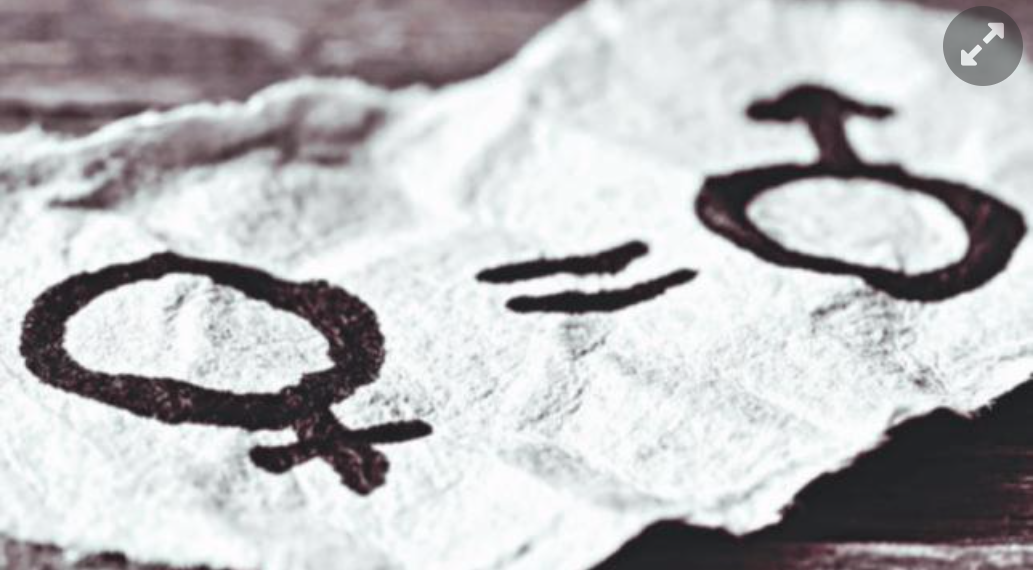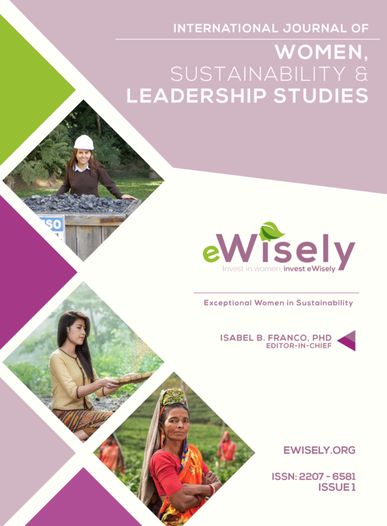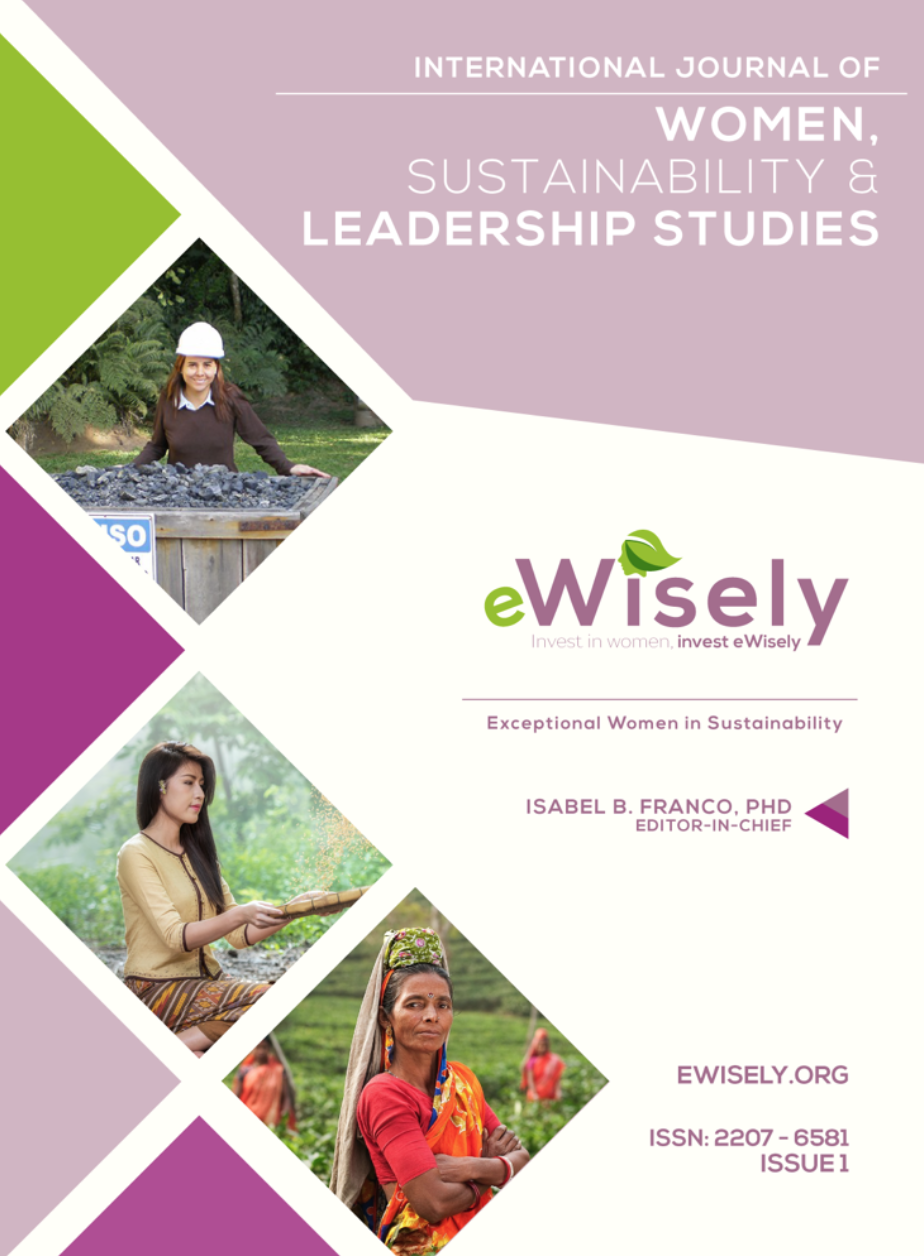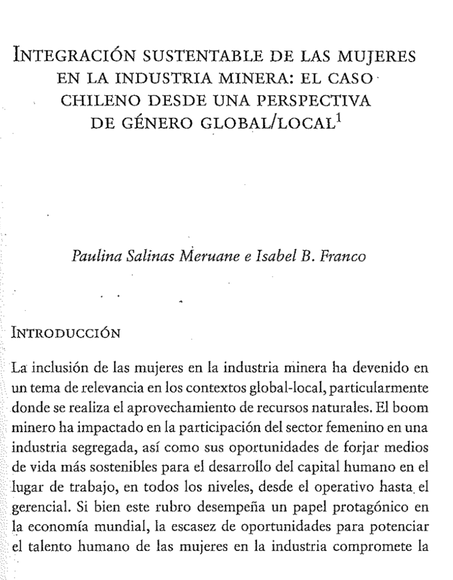Gender and Sustainability: Trends, Themes, and PoliciesExceptional Women in Sustainability: Caitlin Power, eWisely Australia
Participant Stakeholders: The University of Queensland Impact: Since the 1990s, sustainable development has been the pre-eminent force behind the global development agenda. It has flooded academic literature and policy documents, before finally culminating in the United Nations (UN) Sustainable Development Goals — 17 global objectives to be achieved by 2030. These goals are orientated towards understanding, and combating, the complexities which underpin the nexus between poverty and inequality. The term, sustainable development, was first defined in the 1987 Brundtland Report, as, ‘development that meets the needs of the present without compromising the ability of future generations to meet their own needs’. The enduring salience of this often-quoted statement remains highly relevant for the global issues that confront humanity. Trends vis-à-vis energy security, climate change, employment, and population growth serve as examples of how unsustainable practices and gender inequality are mutually reinforcing. |
Click on image to access full document
|
#Yotambién Lidero: Hacia Éxito el SostenibleExceptional Women in Sustainability: Dr. Isabel B. Franco, Founder, eWisely
Participant Stakeholders: Research eWisely Lab Impact: (study available in Spanish only) #Yotambién Lidero: Hacia Éxito el Sosteniblees el ejemplar más reciente de la serie Sostenibilidad Personal. Una serie dedicada a generar herramientas concernientes al Objetivo de Desarrollo Sostenible 3 (Salud y Binestar). Este ejemplar nos invita a experimentar un nuevo estilo de vida, haciendo parte de un movimiento global de mujeres con la voluntad de liderar y contribuir a un mundo más sostenible. Este ejemplar fue escrito por Isabel B. Franco, Ph.D Fundadora de eWisely (Exceptional Women in Sustainability), la red de mujeres de mayor alcance en el mundo y cuyo propósito es conectar y posicionar a las mujeres en el centro de las agendas de sostenibilidad en los ámbitos, global y local. Combinando hallazgos de investigación científica y su experiencia personal; la Dra. Franco presenta este ejemplar, el cual ha logrado conectar tres pilares fundamentales en el nuevo orden global: mujeres, sostenibilidad y liderazgo. Su misión es brindar a las mujeres herramientas de impacto que les permitan liderar, alcanzar el exito de manera sostenible y alcanzar la sostenibilidad personal. Narrando su historia de vida temprana y su anhelo de explorar nuevos horizontes, la Dra. Franco proporciona herramientas para mujeres en los primeros años de carrera. Para aquellas que buscan un nuevo horizonte o reinventarse, este libro les proporcionará herramientas para liberarse de sus miedos, trascender barreras y alcanzar la definición de éxito que mejor las identifique. |
Click on image to access full document
|
Gender Mainstreaming in the 2030 Agenda: A Focus on Education and Responsible Consumption & ProductionExceptional Women in Sustainability: Dr. Isabel B. Franco, Founder, eWisely, eWisely, Leticia Sarmento Dos Muchangos, Ph.D eWisely Mozambique, Mahesti Okitasari, Ph.D, eWisely Indonesia, Ranjeeta Mishra, eWisely India, Manjuma Akhtar Mousumi, eWisely Bangladesh, Athena Nguyen, eWisely Australia.
Participant Stakeholders: United Nations University - Institute for the Advanced Study of Sustainability; BRAC University Bangladesh Impact: Gender equality is a crosscutting issue that affects all dimensions of sustainable development; it is clear that women must be at the centre of the 2030 Agenda. Despite the clear links between the Sustainable Development Goals (SDGs), and the commitment to “leave no one behind,” progress on gender mainstreaming seems to be uneven across the SDGs. This article specifically analyses the links between Gender Equality (SDG 5) and both Education (SDG 4), and Responsible Consumption and Production (SDG 12). Although, improving women’s education has been found to lower fertility rates and improve household nutrition according to scholarly literature, it will take 50 years to achieve gender parity in political representation, and 80 years to achieve economic equality. Furthermore, according to the Gender Gap Report, in 144 countries there remains an average gap of 32% across the four index dimensions: (i) economic participation and opportunity, (ii) educational attainment, (iii) health and survival, and (iv) political empowerment. Placing women at the center of the 2030 Agenda requires stronger links between the SDGs and a real commitment to investing wisely in women’s capacities to cope with pervasive sustainability challenges. Whilst we have seen remarkable advances in gender parity in education, the overall progress towards achieving SDG 5 has been less impressive. Evidently efforts have been made to connect goals 4 and 5, resulting in more equitable and quality learning, creation of lifelong opportunities, and women’s empowerment for economic. There is also evidence to suggest a link between goals 5 and 12 — for example, when women have secure land rights, production is more sustainable and efficient. But few attempts have been made to connect these two areas in practice. |
Click on image to access full document
|
Mujeres de Hierro en América Latina y el Caribe- Integración del Objetivo de Desarrollo Sostenible 5 (ODS 5 Igualdad de Género) en la Industria Extractiva (Minería, Petróleo y Gas) Exceptional Women in Sustainability: Dr. Isabel B. Franco, Founder, eWisely Research Assistant Team
Participant Stakeholders: Dr.Isabel B. Franco, Founder eWisely and Women undergraduate researchers from various eWisely connectors in Latin America and the Caribbean. Impact: (study available in Spanish only) El estudio reportado en este informe presenta la integración del ODS 5 en la industria extractiva en países en América Latina y el Caribe. El estudio se soporta en hallazgos de investigación científica y una compilación de casos de mujeres en extractivas en países en América Latina y el Caribe. La investigación hace énfasis en la integración del ODS 5 (Igualdad de Género) con el objetivo de promover prácticas e iniciativas internacionales para la inserción sostenible de la mujer en la industria extractiva y su cadena de valor en América Latina. Este estudio presenta un enfoque para la integración del ODS 5 soportado en investigación científica liderada por nuestra Fundadora la Dra. Isabel B. Franco y el equipo de investigación eWisely en el marco del proyecto WIMLATAM . Este estudio nace de la necesidad de fomentar la participación sostenible de mujeres en la industria extractiva y la cadena de valor. Los retos que enfrentan las mujeres a nivel global generan limitaciones que comprometen la productividad del sector. Entre las limitaciones existentes predominan: La disparidad de salarios y bajas oportunidades de desarrollo profesional, la dificultad para conciliar la vida familiar y personal debido a los sistemas de trabajo en turno y falta de arreglos laborales flexibles, así como una cultura masculina dominante que se refleja en las rutinas de trabajo, y que resulta en la discriminación y acoso dentro de las organizaciones. |
Click on image and visit our Facebook Mentoring Group to access full document (under files)
|
MUJERES DEL DORADO: EL OBJETIVO DEL DESARROLLO SOSTENIBLE EN LA INDUSTRIA EXTRACTIVA COLOMBIANA (Minería, Petróleo y Gas):
|
Click on image and visit our Facebook Mentoring Group to access full document (under files)
|
Not Just a Women’s Issue: Sustainable Leadership
in Male Dominated Fields
|
Exceptional Women in Sustainability: Dr. Isabel B. Franco, Founder eWisely, Paulina Salinas, eWisely Antofagasta, Ellen Derbyshire, eWisely Australia
Participant Stakeholders: United Nations University- Institute for the Advanced Study of Sustainability UNU-IAS, Universidad Catolica del Norte, The University of Queensland Impact: (available in Spanish only) Equal opportunity to engage in leadership roles and participation is not just the responsibility of women. The limiting factors for engagement are underpinned by a broader set of androcentric socio-cultural, governmental and organizational norms within male dominated industries, such as extractives. Thus, the responsibility lies in a collaborative effort by the private sector, government, higher education institutions and civil society organisations to promote equal opportunities towards sustainable leadership of women in the extractives industry. Although, recent trends indicate an increase in participation of women in leadership roles males dominated fields. However, these opportunities remain highly conditional and limited by systemic conceptions of gender roles (Ibáñez, 2010; National Council of Innovation and Competitiveness, 2014, Council of Mining Competencies, 2015; Navarro, Roman and Infante, 2016). The significance of this issue results from the challenges imposed on the ability for women to gain leadership opportunities from training in higher education through to their career transition. Issues such as: lack of recognition, limited skill development for career growth, educational barriers, work and life balance, reconciliation of maternal responsibilities and career development, are all underpinned by a predominantly androcentric policy and government framework. Thus, this study presents a framework that promotes the interests and growth of women into leadership roles and in male dominated industries. |
Click on image to access full document
|
Equal Rights Ensure a Strong SocietyExceptional Women in Sustainability: Isabel B. Franco, Ph.D Senior Sustainability Advisor, eWisely, Manjuma Akhtar Mousumi, Sarvajaya Choudhury, eWisely Bangladesh
Participant Stakeholders: United Nations University- Institute for the Advanced Study of Sustainability UNU-IAS and BRAC Institute of Educational Development, BRAC University Impact: Human rights include women's rights, and for women to be empowered on equal grounds as men, is at the end of the day, human rights. However, we find ourselves today in a world led and dominated by men. This begins from the basic core household level and carries on up to global dominance. Women need to be given fair and equal representation in every field of life to ensure a balanced social environment. When society allows women to grow, it automatically enhances the structure of the society and its economic status. A disturbed and distressed society usually gets created out of suppressed women and dominant men. The key is equality of existence. This article shows that it is rather difficult to obtain equal status for women in society when all the norms and rules are dictated by men. We find men and women on different payrolls for the same job performed by either, and this is no secret. Conditions are already laid down for women in society even before they can understand society. The pressure for a female on the ways of living life, beginning from home to every little step outside of it is massive. When society is afraid of loosening and letting go of the grip on its reins on women, it only reflects how weak it is. |
Photo Credit: Sarvajaya Choudhury
Click on image to access full document |
Sustainable Human Capital Development of Women in the Extractive Industry – The Colombian CaseExceptional Women in Sustainability: MA Karen de la Hoz, Dr. Natalia Cano Londoño , eWisely Colombia and Isabel B. Franco, Founder, eWisely
Participant Stakeholders: Research eWisely Lab Impact: The main challenge faced by companies in the development of their sustainability reports is the incorporation of a sustainable approach that promotes both corporate and social sustainability. Scientific research in the Colombian case showed that the extractive industry must invest in six forms of women’s human capital, particularly those in resource regions, namely: education, innovation, employment, entrepreneurship, leadership and sustainability. These components are part of the so-called 'Framework for Sustainable Human Capital Development' TM. The existing sustainability reports and social responsibility agendas of companies in resource regions rarely incorporate these components simultaneously or, fail in implementing those in countries such as Colombia. This report does a practical application of these six components in light of the sustainability reports of extractive companies operating in Colombia. The report presents preliminary findings of scientific research aimed at exploring the application of the 'Sustainable Human Capital Development Framework' TM in the Colombian context. |
Click on image to access full document
|
Women’s Empowerment Programs: Opportunities to Reduce Gender Based Violence in Papua New GuineaExceptional Women in Sustainability: Cecilia Reategui Olguin, eWisely PNG
Participant Stakeholders: eWisely PNG, The University of Queensland Impact:The world has experienced rapid resource development threatening community livelihoods and human capital assets, particularly those of women. This research explores the linkage between disruptive industries like extractives and lack of sustainable livelihood options for women, which at the present scenario is not only causing productivity losses in extractive enterprises, but is also jeopardizing regional sustainability in resource locations. Research findings presented in this article show that stakeholders are increasingly being tasked with social responsibilities to forge sustainable livelihoods and enhance the human capital of communities, particularly of women. However, they do not know how to respond to emerging sustainability challenges. The paper proposes a strategic women-centric approach to sustainability to help stakeholders integrate women’s livelihoods and human capital assets into the extractive industry or other economic sectors relevant for the local economy. This approach has the potential to foster overall sustainability, particularly in the context of developing resource regions. This piece is based on a qualitative research technique for data analysis and case study research methodology. |
Click on image to access full document
|
Integración Sustentable de las Mujeres en la Industria Minera: El Caso Chileno desde una Perspectiva de Género Global/Local
Exceptional Women in Sustainability: Isabel B. Franco, Founder, eWisely, Paulina Salinas Menaure, Universidad Católica del Norte
Participant Stakeholders:Universidad Católica del Norte, Chile United Nations University- Institute for the Advanced Study of Sustainability UNU-IAS Impact: (available in Spanish only) En colaboración con colegas de la Universidad Católica del Norte en Antofagasta, Chile, nuestra Fundadora la Dra. Isabel B. Franco, publicó la investigación Integración Sustentable de las Mujeres en la Industria Minera: El Caso Chileno desde una Perspectiva de Género Global/Local. La investigación, conecta el ODS 5 (Igualdad de Género) y el ODS 8 (Trabajo Decente y Crecimiento Económico). Basado en una metodología de estudio de caso y análisis del discurso, el estudio involucró la participación de líderes en la industria, mujeres en minería en Chile, organizaciones de la sociedad civil y hacedores de política. Los hallazgos mostraron que las instituciones de educación superior son responsables de equipar a las mujeres con habilidades como adaptabilidad, estrategia, liderazgo, trabajo en equipo, etc. Sin embargo, el mayor reto para la industria es la ausencia de políticas corporativas y de gobierno que permitan una mayor participación de las mujeres en ambientes predominantemente masculinos. Los hallazgos pueden ser aplicados en otros contextos mineros en América Latina o en otras latitudes. El estudio fue publicado en español por la Universidad Católica del Norte en Antofagasta, Chile, en el libro titulado 'Desarrollos y Subdesarrollos en los Territorios de Chile'. |
Click on image to access full document
|
